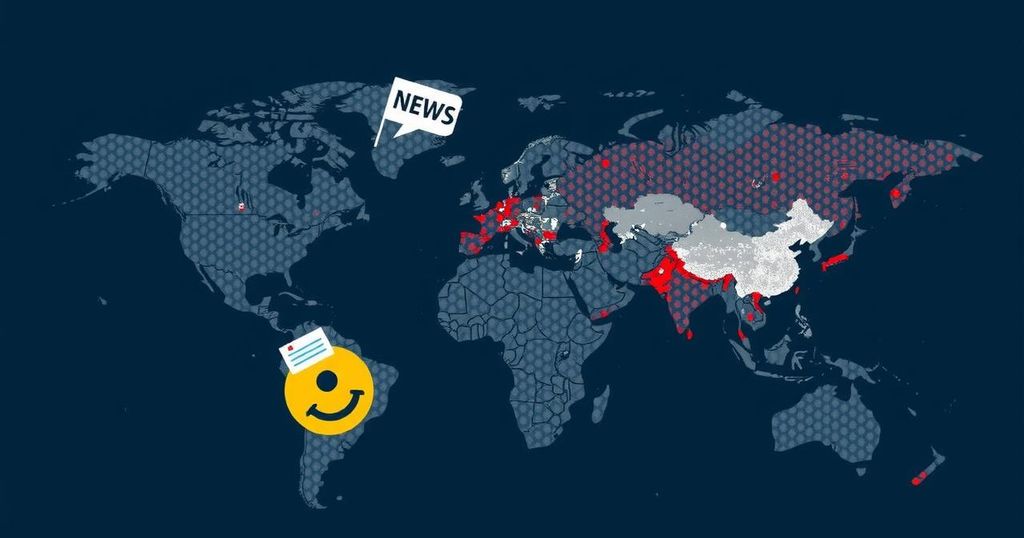Global Developments: Immigration, Conflict, Social Change, and Political Dynamics
This article highlights key global developments: the Netherlands enacts tougher migration policies amid a surge in asylum applications; a deadly attack in Sudan escalates the ongoing conflict; South Koreans protest a court ruling affecting same-sex partner benefits; China condemns a significant US arms sale to Taiwan; and Bulgaria faces another electoral cycle with challenges in coalition formation.
On Friday, the Dutch government enacted stringent new immigration policies in response to the significant influx of asylum applications in the past year, totaling 51,000. These measures include stricter border checks, an abolishment of mandatory municipal placement for asylum seekers, and restrictions on family reunification. This shift aligns with recent trends in other European nations, such as Italy and Sweden, towards more rigorous migration controls. In Sudan, escalating tensions between the Rapid Support Forces (RSF) and the Sudanese Armed Forces resulted in a violent attack on Al-Sareeha village, claiming at least 124 lives and leaving over 200 injured. This incident exacerbates the ongoing humanitarian crisis, which has already displaced millions of individuals. In South Korea, a substantial protest occurred on Sunday, organized by Christian groups opposing a recent court ruling that permits same-sex partners to receive spousal health benefits. While organizers claimed that the turnout surpassed one million participants, police estimates indicated that approximately 230,000 individuals were in attendance. Furthermore, China lodged a strong condemnation of a $2 billion arms deal between the United States and Taiwan, characterizing it as detrimental to Sino-American relations and a threat to peace in the Taiwan Strait. This transaction marks the 17th arms sale to Taiwan by the Biden administration and includes advanced air defense technologies, prompting Beijing to assert that it will take countermeasures to safeguard its sovereignty. In Bulgaria, preliminary exit polls indicate that Boyko Borisov’s GERB party is leading in the nation’s seventh election within three years. Despite this lead, the challenge of forming a coalition looms, as the most recent election culminated in a hung Parliament. The pro-Russian Vazrazhdane party performed below expectations, while the reform-oriented PP-DB surpassed them. Final election results are anticipated on Monday.
The article covers critical global events reflecting current geopolitical, humanitarian, and social issues. In Europe, countries are tightening immigration policies due to rising asylum applications, a significant topic amid Europe’s ongoing migration challenges. In Sudan, violent conflicts between military factions lead to human suffering and displacement, further heightening humanitarian concerns. South Korea grapples with social change and resistance evident in mass protests against judicial decisions surrounding LGBTQ rights. Meanwhile, international relations are strained with China’s reaction to US military support for Taiwan, stressing the delicate balance of power in the region. Lastly, Bulgaria struggles with political instability as it navigates another electoral cycle, signifying the complexities of governance in a transitional democracy.
In summary, recent developments across various nations illustrate pressing issues in migration, humanitarian crises, social change, international relations, and political stability. The Netherlands is adjusting its immigration policies amid rising asylum applications. In Sudan, violent confrontations remain a humanitarian concern. Social tensions in South Korea are evident through large protests against legal changes favoring LGBTQ rights. Additionally, US arms sales to Taiwan provoke stern reactions from China, and Bulgaria faces political challenges as it seeks stable governance. These events collectively reveal the intricate dynamics shaping global affairs today.
Original Source: www.gzeromedia.com




Post Comment